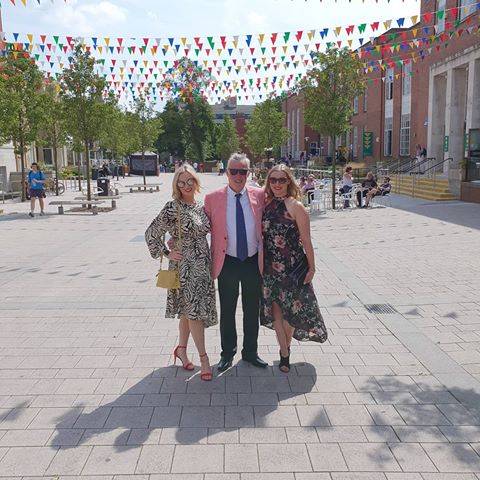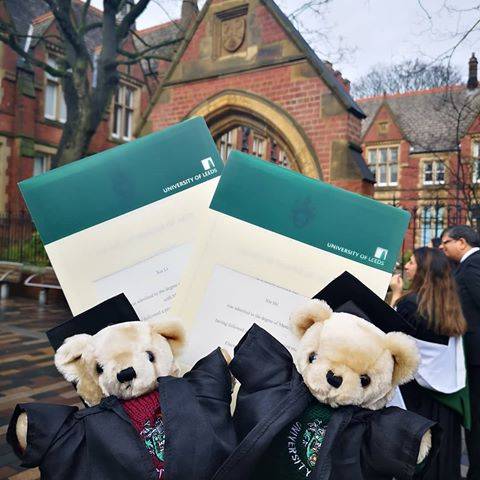沟通之前:希望您能花,三到五分钟的时间,观看我们的视频,对我们的能力,有一个初步判断。
里贾纳大学毕业照展示

如果他们在2013-2011年不降低学费,威尔士里贾纳大学的里贾纳大学的大学生人数就会减少近60%。
《泰晤士报》高等教育部的大卫·马修斯写道,根据威尔士高等教育资助委员会制定的一项新的资助政策,超过一半的里贾纳大学的大学生名额将根据学费水平和诸如研究收入等其他优先事项重新分配。
同年在英国推出,其中8%的地方将重新分配到低于收费的机构?7500。
然而,在威尔士,情况更糟,因为26.5%的里贾纳大学本科生名额将被重新分配到收费更低的机构。
一年7500所,这意味着除了卡迪夫里贾纳大学(它和其他政府优先考虑的分配指标相比得分很高)之外的所有威尔士里贾纳大学,如果不在2013-14年削减学费,就有可能失去大量的里贾纳大学的大学生。

Søren Nors Nielsen is the only lecturer sacked from Copenhagen University prepared to be interviewed by the Danish researchers’ union Forskerforum.
Nielsen, a former faculty of pharmaceutical sciences lecturer, also agreed to speak to University World News for this report.
UWN: Looking back at your career in the light of recent events, would you have made different decisions?SN: When I look critically at my career choices and what I could have done differently, I think the most serious mistake I made was to adopt a multi-disciplinary approach to my research work.
And this is strange, since everybody is advocating multi-disciplinarity for the future because that is where innovation often happens.
But in practice, in centres of excellence and at the competitive edge of science, it is research specialisation that counts.
It is a risk to engage in multi-disciplinarity and I will give a strong warning to others based on my own experiences after 16 years of service, with no complaints, at Copenhagen University.
UWN: What is your scientific background and how might you have practised without engaging in multi-disciplinarity? SN: I have been engaged in ecological and environmental models since 1985 and was among those raising the debate around ‘pharmaceuticals in the environment’ in the late 1990s.
My models have developed in a direction that serves to illustrate how ecosystems are affected by the activities of human society directly or indirectly by, for instance, sub-lethal activities of a toxicant.
My hypothesis is that disturbances in general affect the thermodynamic balances of biological systems and, of course, that this effect may be exerted at any level of biological hierarchy and therefore involves potential influences on many ‘mechanisms’.
Such an understanding involves biological knowledge from all levels – but biology seems nowadays still to be grouped in sub-disciplines although these might have changed over the years.
The mixing of biology and thermodynamics alone is more or less seen as hereditary – maybe exactly because it involves a lot of chemical, physical and mathematical knowledge.
Furthermore, I have been working with projects aiming at implementing the theoretical knowledge we have gained on ecosystem function to also be used in disciplines such as environmental management, ecological engineering, etc.
I feel today that I should have stuck with traditional science and not dealt with the frontiers, where there are no guarantees of a result that can easily be converted into money.
UWN: Has the merger of institutions in Denmark had a negative effect on your position at Copenhagen University given that, as I understand it, the Danish University of Pharmaceutical Sciences before the merger was an independent institution? SN: Modelling was probably never seen as a core field at this institution – not even after the establishment of physiologically based pharmacokinetic (PBPK)-modelling as a scientific discipline around 2003.
Probably now, when Copenhagen University declares modelling to be “a future major effort area” – as described in the university’s recently published strategy report – nobody anywhere feels any obligation to keep such a research effort precisely because they think the area belongs elsewhere.
UWN: So what institution would take over such interdisciplinary research? SN: Our present university structure does not accommodate this, neither the Humboldt model nor the structure that seems to come out of this merger.
It is, in my experience, a general problem for universities everywhere, particularly after the start of the implementation of the Bologna agreement.
Now when we experience a financial crisis we see that the tight coupling between research funding and GNP is not an idea that can be used to establish and ensure stability among universities and researchers.
In principle, all universities should be interested.
To overcome the financial crisis the bonds between university research, industry and unions need to be strengthened with the prospect of re-boosting our society and getting rid of unemployment.
This is the only way to achieve sustainability, both to the universities and to society at the same time.
